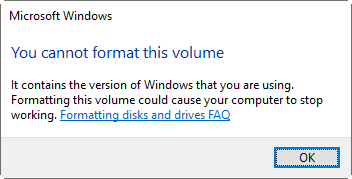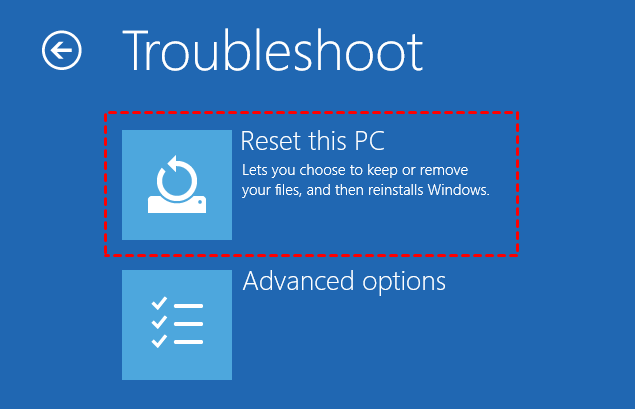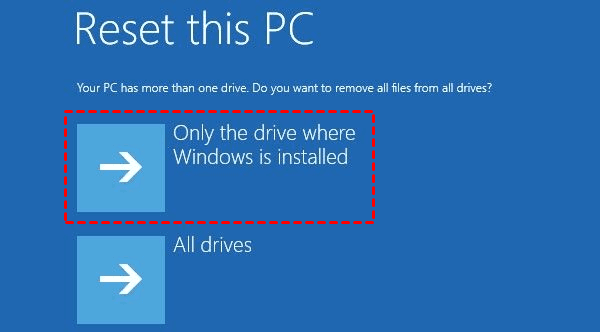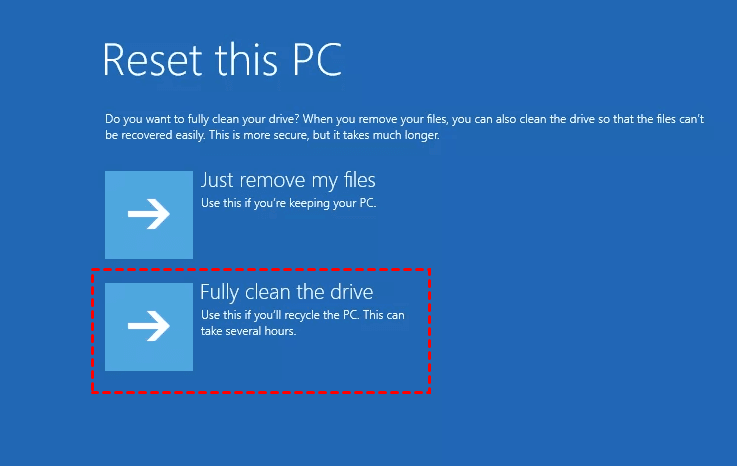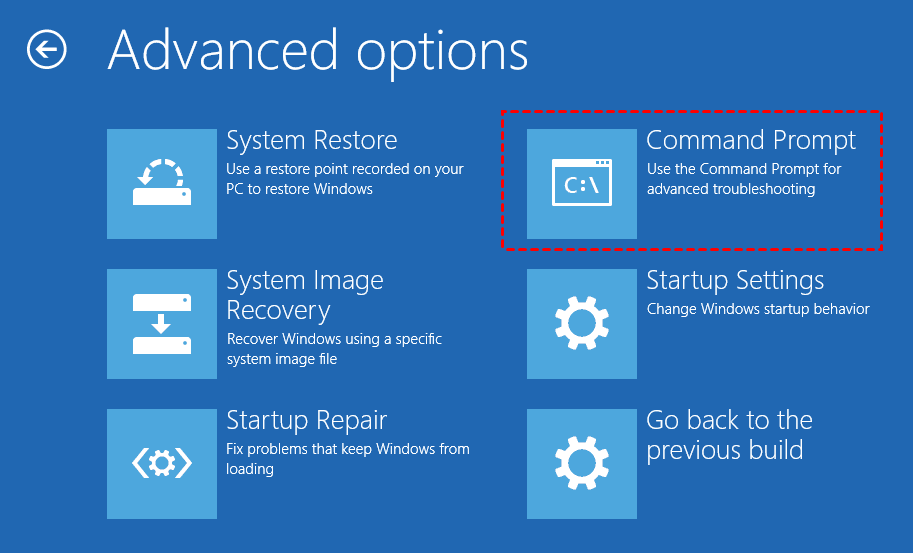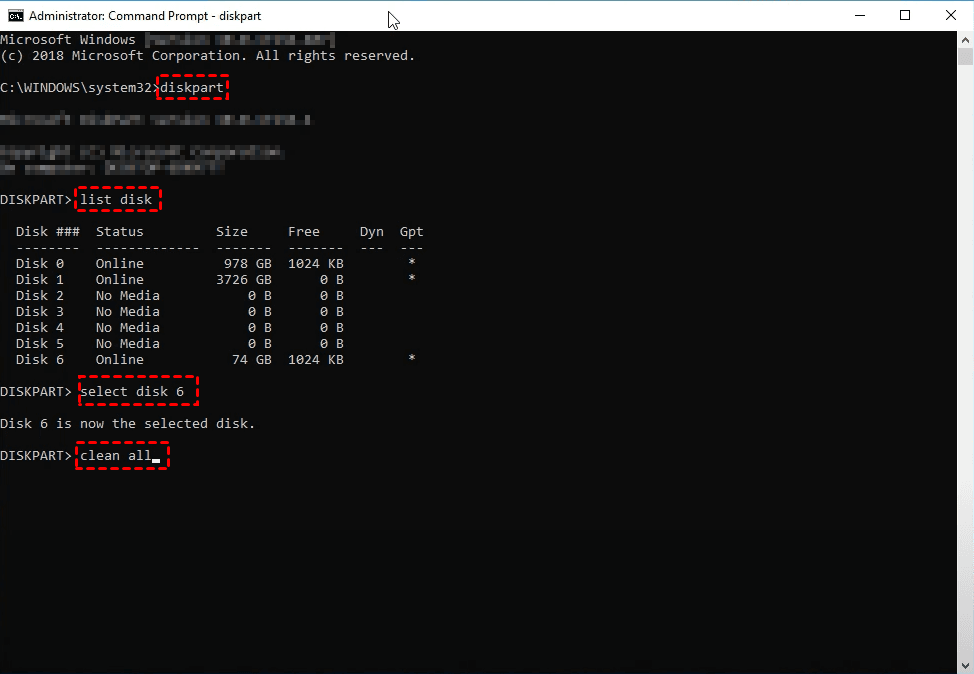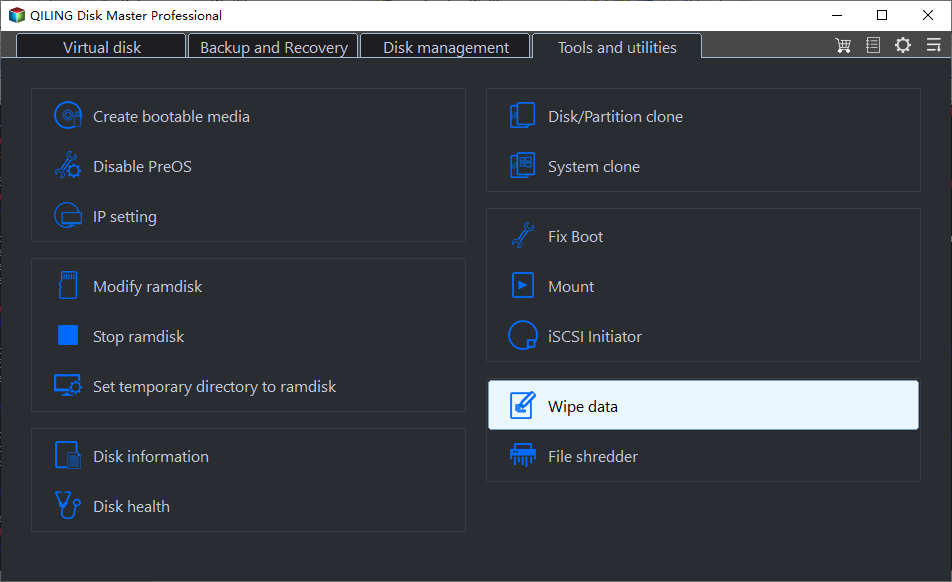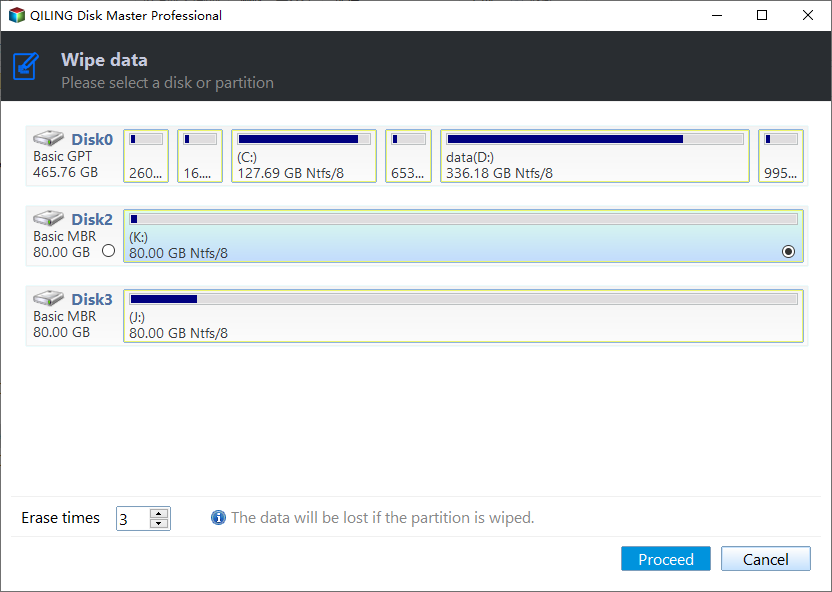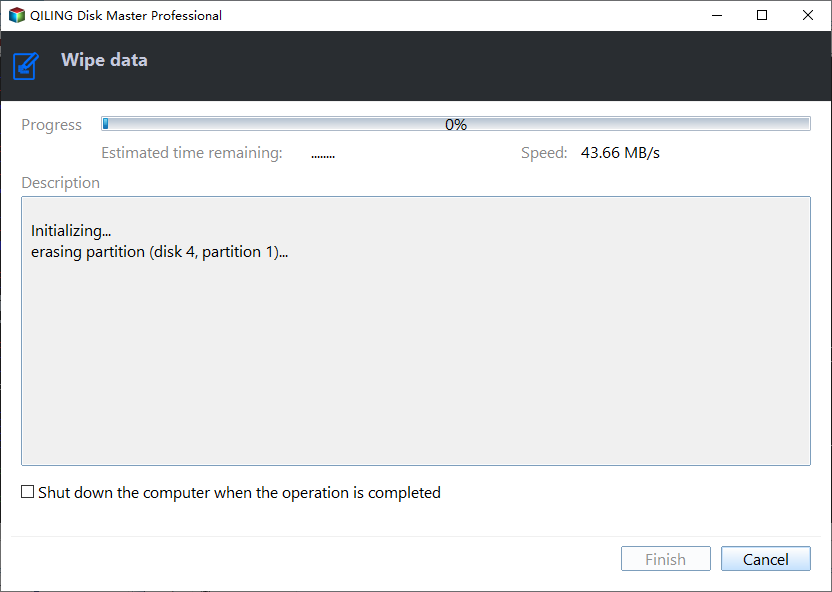How to Wipe C Drive Securely in Windows 10 | 3 Methods
Case: I want to erase C drive
To format your C drive on Windows 10 and reset it to factory settings, follow these steps:
The C drive is the default drive where Windows 10 is installed, housing system files, applications, and user files. As a result, it's essential to exercise caution before attempting to wipe it, considering the importance of its contents.
In Windows 10, it's not possible to directly format the C drive using File Explorer or Disk Management. Therefore, you need to try alternative methods that are specifically designed for system drives.
How to wipe C drive in Windows 10 properly (3 cases)
When considering erasing the C drive in Windows 10, the approach you take depends on your goals. You may want to erase the drive to start fresh, recover from a virus, or prepare for a system upgrade. In each case, you'll need to decide whether to reinstall Windows, perform a clean install, or use a different method such as a system image or a recovery drive.
Free up space and resolve system errors, then install a clean copy of Windows to get better performance.
>> To clean up C drive in Windows, you can uninstall unused apps, run disk cleanup to delete temporary files, thumbnails, and downloaded files, or completely wipe C drive and reinstall Windows 10 through Reset this PC.
Remove everything off the disk (including the C drive) so as to discard the hard drive securely.
>> Manual deletion of data is not secure because the deleted data can still be recovered. To completely clean a hard drive in Windows 10, you can refer to Method 2 or Method 3.
Delete Windows installation from the old hard drive and keep it as a secondary storage.
>> To make Windows boot smoothly from a new hard drive, you can either keep the old C drive intact and set the new hard drive as the first boot option in the BIOS, or erase the old hard drive for more storage space using alternative methods.
- Method 1. Wipe C drive and reinstall Windows 10
- To clean the entire hard drive including the C drive via DiskPart, follow these steps: Open Command Prompt as Administrator, type `diskpart`, and press Enter. At the DiskPart prompt, type `list disk` and press Enter to list all disks. Identify the disk you want to clean and note its number.
- For a more secure and thorough approach, specialist software can be used to wipe the C drive or system disk. This method is considered the most secure as it ensures the complete erasure of all data, including operating system files, programs, and user data. The software will overwrite the entire disk with random data, making it virtually impossible to recover any information.
If you want to wipe everything on C drive
Use this tool to securely wipe only the C drive, the entire disk, or specific partitions, with various security levels to choose from.
Method 1. Wipe C drive and reinstall Windows 10
In Windows 10, you can use the Reset this PC feature to reset the computer to its factory settings, giving you the option to either reset Windows 10 and keep your files, or to completely remove everything from the PC.
"Keep my files" will remove apps and settings but keep personal files, while "Remove everything" will remove all apps, settings, and personal files, allowing users to choose the option that best suits their needs before reinstalling.
1. Access Windows 10 Reset this PC by following approaches:
Inside Windows: To reset your PC, go to Start, then click on Settings. In the Settings window, click on Update & Security.
From boot: To reset your Windows PC, insert the installation CD or recovery drive, select your language and region, and then click "Next". From the "Troubleshoot" menu, choose "Reset this PC".
2. If your PC has multiple drives on the system disk, selecting "Remove everything" will give you the option to remove files from either only the drive where Windows is installed (usually C drive) or all drives. If you want to wipe only the C drive, you can select the first option.
3. You can choose to either just remove your files, which will perform a quick format, or fully clean the drive, which will write zeros to the hard drive and make it difficult to recover the deleted data.
4. Confirm the operation and start Reset.
When the installation is finished, your computer will restart and begin setting up Windows.
Method 2. Clean the entire hard drive including C drive via DiskPart
To erase an entire system disk, including the C drive, using DiskPart is the easiest solution. You can quickly format all MBR or GPT partitions with the "clean" command, which is faster but less secure. If you have sensitive data on the hard drive and want to make it unrecoverable, use the "clean all" command instead.
1. Run Command Prompt in Windows 10 or from boot.
The hard drive will become unallocated and uninitialized after erasing, so if you want to clean your current system disk, boot to Windows 10 recovery options to use Command Prompt.
2. Enter the following commands and press Enter after each line.
Diskpart
List disk
Disk x
Clean all
*x refers to the disk you want to erase.
When the operation is complete, you'll need to initialize the disk if you want to use it as secondary storage.
Method 3. Wipe C drive or system disk via specialist software (most secure)
You can use a third-party software like EaseUS Partition Master or DiskGenius to safely erase C drive. These tools can delete all data on the drive, including operating system, programs, and files, and then restore the drive to a blank state.
With the help of software like Qiling Disk Master Professional, you can choose to wipe the entire system disk, just the C drive, or individual partitions, giving you control over the wiping process.
The software features a powerful Disk Wipe tool that can securely erase data from any internal or external hard drive, partition, USB flash drive, or other storage devices, preventing unexpected data loss due to accidental erasure.
Windows uses zero filling to prevent sensitive data from being recovered, and offers four wiping methods, including DoD 5220.22-M with up to 7 passes and Gutmann with 35 passes.
Click the download button below to have a try:
How to wipe C drive securely in Windows 10/8/7:
1. Please go to the Backup tab and make a File Backup to protect your important data, and then switch to the Tools tab and select Disk Wipe.
2. You can choose to wipe either selected partitions and unallocated space or all the partitions on the disk. If you select the former, you can then choose to wipe only the C drive on the next page. If you select the latter, you can choose to wipe the system disk.
3. Choose the wiping method you need and proceed with disk wiping. Safer wiping methods typically involve more passes and lower wiping speeds.
✍Notes:
- This software will reboot to WinPE to wipe the current system disk or C drive with Windows installed, resulting in a system that cannot be entered after completion.
- This feature doesn't support wiping dynamic disks.
Conclusion
To wipe the C drive in Windows 10, you'll need to delete all files, programs, and settings on the drive. This will essentially restore the drive to its factory settings. You can do this by booting from a Windows installation media, such as a USB drive or CD/DVD, and then selecting the "Repair your computer" option.
Qiling Disk Master is a good alternative to Reset this PC and DiskPart, offering a disk wipe feature that allows for more flexibility and customization, as well as a backup feature to safeguard important files.
Qiling Disk Master allows you to clone an operating system to a new hard drive, helping to transfer Windows 10 installation to another drive, and then erase the old hard drive using Disk Wipe. This feature is useful for replacing old hard drives with new ones.
Related Articles
- 2 Methods to Wipe Hard Drive without Deleting Windows 10/8/7
- How to Format Hard Drive without Losing Data | 2 Effective Ways
- 3 Ways to Backup C Drive in Windows 10 [Step-by-Step Guide]
- How to Transfer C Drive to SSD in Windows 10/8/7 Easily?
